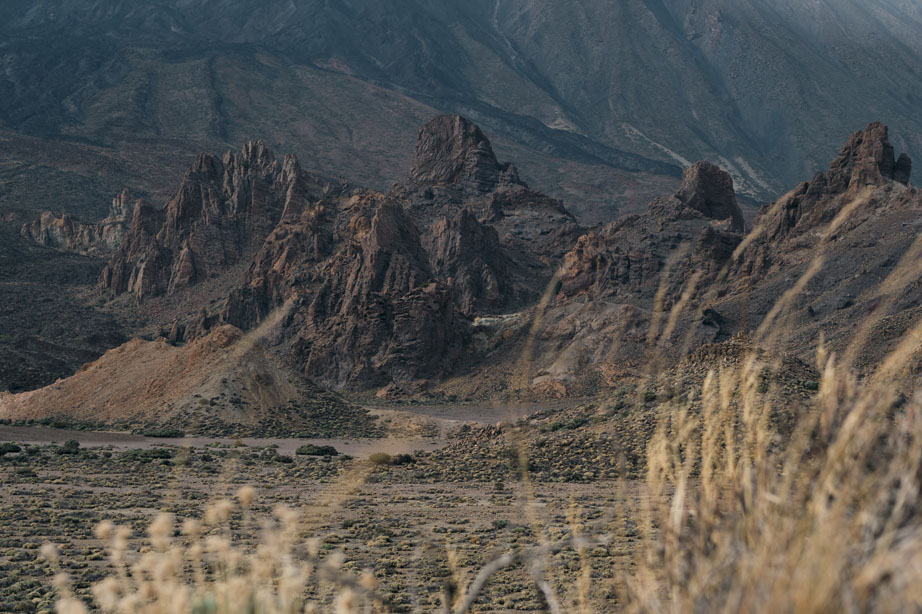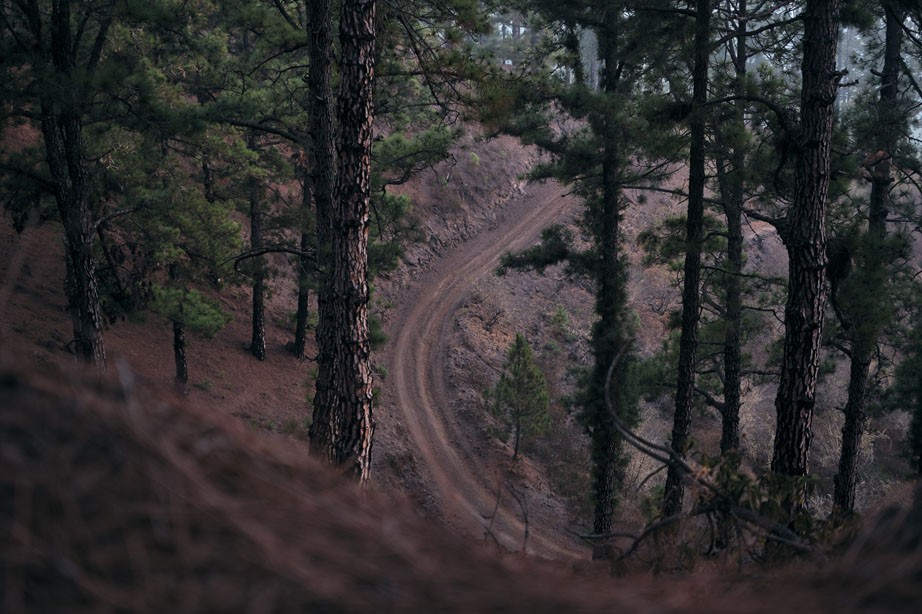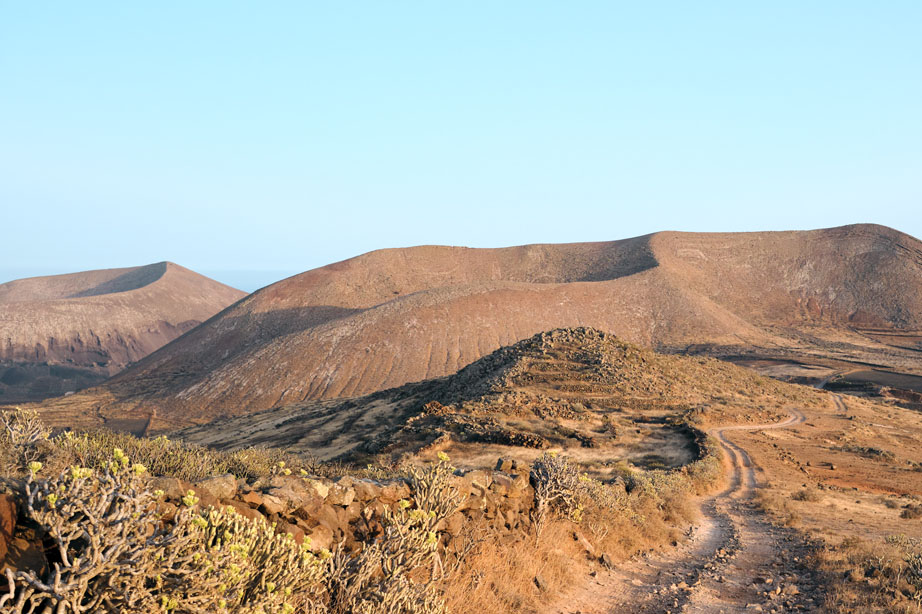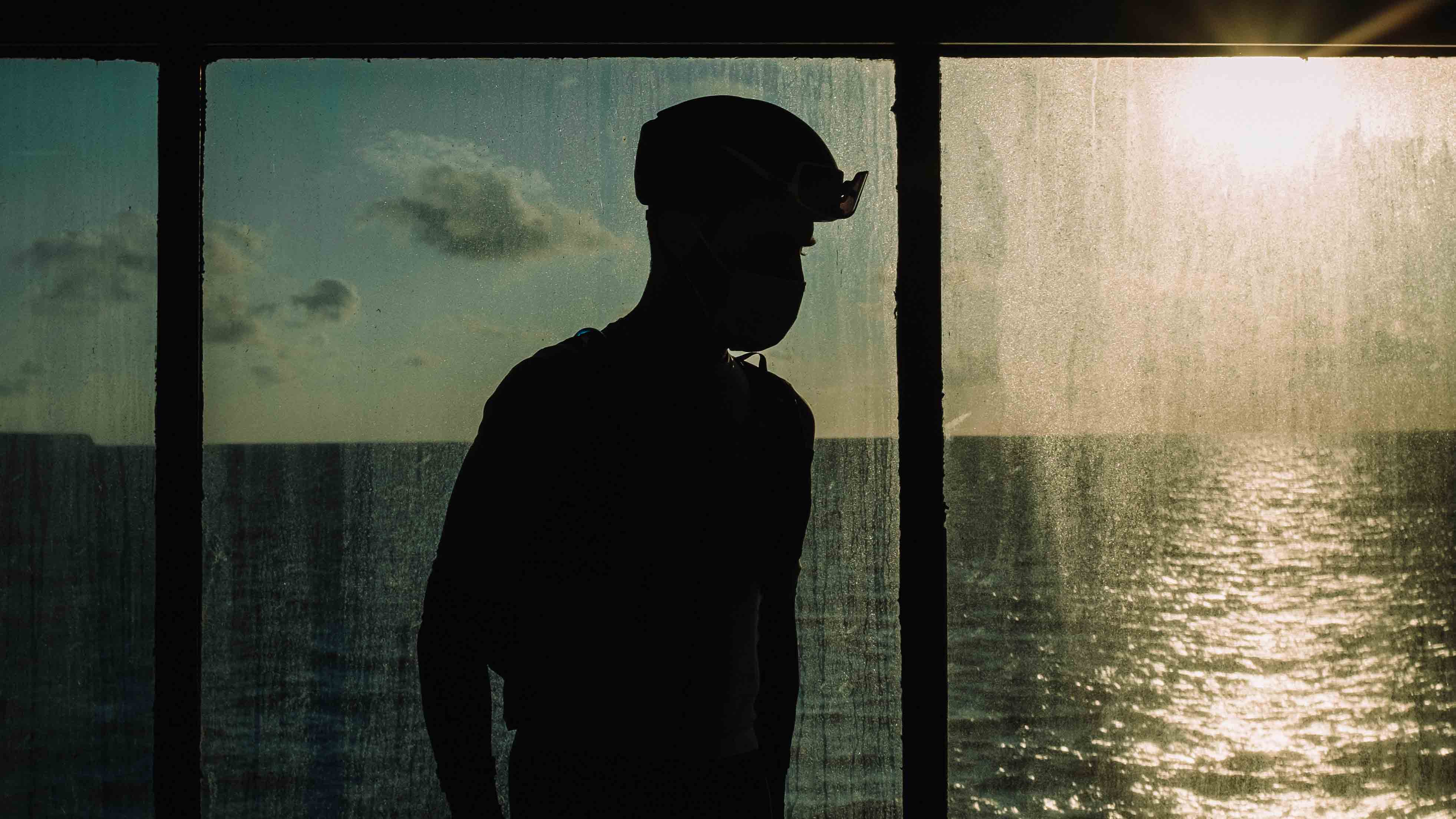After the cancellation of the 2020 event, the first edition of this ultra-distance race was finally launched in autumn 2021. Matt the organiser had presented three versions – Trail, Road and Gravel. I signed up for the trail format, the most extreme of the three, with 800kms of total travel and more than 20,000m of positive elevation gain.
Even knowing that the route had been designed to favour mountain bikes, I took a risk, opting once again for a gravel bike, albeit one fitted with wide tyres, seeking to reaffirm its versatility.
The riders who dared to enter the event enjoyed a close family environment full of good vibes.
With mandatory anti-Covid19 measures in place, a volcanic eruption on La Palma in the run-up to the event, and the difficult logistics of the event itself, it was a different experience to other multi-day events I had participated in. Although the level of assistance put in place by the organisers was necessarily discreet, the riders who dared to enter the event enjoyed a close family environment full of good vibes.
When I arrived at the house which had been set-up for the collection of race numbers and as the place where the pre-race briefing would be held, it looked like half a student flat/half a hippie commune! People were eating at odd hours of the day and sleeping everywhere, some on the sofa, others in a hammock on the terrace, even on an insulated mattress in the garden. Everyone knew that for the next few days rest and sleep would be scarce.
"I was not feeling 100% the day before the event was due to start, maybe not even 80% ”
In the days before departure, while participants were arriving on the island, stories were shared, small shake-down rides were completed, new kit was giving some last-minute testing, even a few beers were sunk on the nearby beaches while we enjoyed magnificent sunsets. I am sure new friendships were forged too - community, in the end, is the beauty of everything.
I was not feeling 100% the day before the event was due to start, maybe not even 80%. I found a nearby pharmacy to buy some medicine to try to alleviate the severe headache and congestion that I was suffering from.
The event was a test very different from other offerings on the gravel calendar. The participants had to take it as a race from ferry to ferry. There were adventures to be had on each island, each one so different in terms of landscapes.

As the only Spaniard on the Shimano Gravel Alliance team, it seemed that I would enjoy certain advantages since I knew the language, but this type of event does not allow you a full interaction with the people of the environment - no more than a quick conversation with the taxi driver when picking me up from the airport, when ordering a coffee, or when taking out another ferry ticket. So, I was practically on an equal footing with my non-Spanish speaking peers.
Despite their worries about Covid19, the locals of the Canary Islands, with their characteristic accent, were welcoming and very friendly. I was surprised by their enormous gratitude that we had chosen to visit their part of the world.

The first island, Lanzarote, we would visit it at night, since the departure was set for 10.00pm and the first ferry to the second island left at 8.00am the following morning. On the first climb, I joined a group of about 5 riders who were already in the lead. I was the only one who rode on a gravel bike, so I took advantage of the small asphalt sections or the smoother areas of the course where I could rest on the aerobars. I knew that in the more technical parts I would suffer. The absence of light did not make things any easier – picking a smooth line was not easy.
When you are used to riding in various situations, you know your body, and I knew something was wrong. It was night, in November and I was riding in short sleeves? The thermostat that regulated my body was not working properly. Cold sweats started, which heralded the arrival of worse news to come.
Despite feeling pretty rough, by 6.00am I had arrived at the port, in plenty of time to take the first ferry of the day at 8.00am. Some of the lead group of riders, like Erwin, decided to take advantage of those hours to rest. Others, like Sofiane, Josh and myself wanted to have breakfast in a cafe. The ferry journey was short, only 35 minutes to get to the second of the five islands, so we needed to get in some fuel while we could.
Fuerteventura (strongwind), lived up to its name
I had studied the logistics, I knew that Fuerteventura was the determining island. If you crossed it at an average speed of 20kms/h you would reach the port in time to catch the last ferry of the day. Those who did not succeed had to wait 12 hours until the first ferry of the following day.
The first part of the island had flat and very favourable terrain. I didn´t hesitate, I left the ferry without looking back and had good feelings, but it was a mirage. Despite riding at the front of the race for almost 40 kms, I didn’t feel hungry so hadn’t eaten anything. It was a bad sign since I knew that my energy reserves would have an imminent expiration date.

"You have to be strong and know how to overcome those moments of weakness."
It was at this point that my mind began to spin everything around. In ultradistance events you have to be strong and you need to know how to overcome those moments of weakness. You have to find a reason for putting yourself through all this suffering.
But the discomfort soon overcame me. The headache reverberated through my brain with every stone and pothole on the road. Despite everything and even though I was riding in a scenic paradise and doing what I like the most (riding a bicycle), I could not do it. After having to push the bike up several ramps I decided to withdraw from the event.
Scratching is not an easy decision. Perhaps stopping and resting for a few hours would have been enough, but at that time it was the right decision. My health was not optimal to bring my body to the limit of effort and the lack of sleep just compounded this.

"It is important to accept that you cannot always cross the finish line, let alone with your hands in the air ”
Once I retired, I was initially relieved. There was a release from the stress of the competition. But the next day, after recovering in a hotel, the demons would take over my head.
We are taught to admire a winner and to always seek victory. It is difficult to train yourself to accept defeats. But, knowing how to make vital (and potentially lifesaving) decisions in the middle of a competition, is a critical skill of an ultra-endurance rider. It is important to accept that you cannot always cross the finish line and even less often, can you assume you will do it with your hands in the air.
The event was tough and this time, I wasn’t able to complete it.
Congratulations to all those riders who knew how to manage their demons and who safely finished this event.
Images courtesy of Mat Minelli and Velofilia
Ibai fradejas
Ibai lives in Spain and has been a gravel enthusiast since long before it became fashionable. He says that he is super proud of creating and directing one of the most important gravel events in his home country - the Deiadar Gravel. His mission is to inspire enthusiasts for gravel, bikepacking, and adventure cycling in general. Ibai describes riding a gravel bike with friends is one of the best experiences of his life. In the future, his goal is to ride the most spectacular gravel track on every continent.